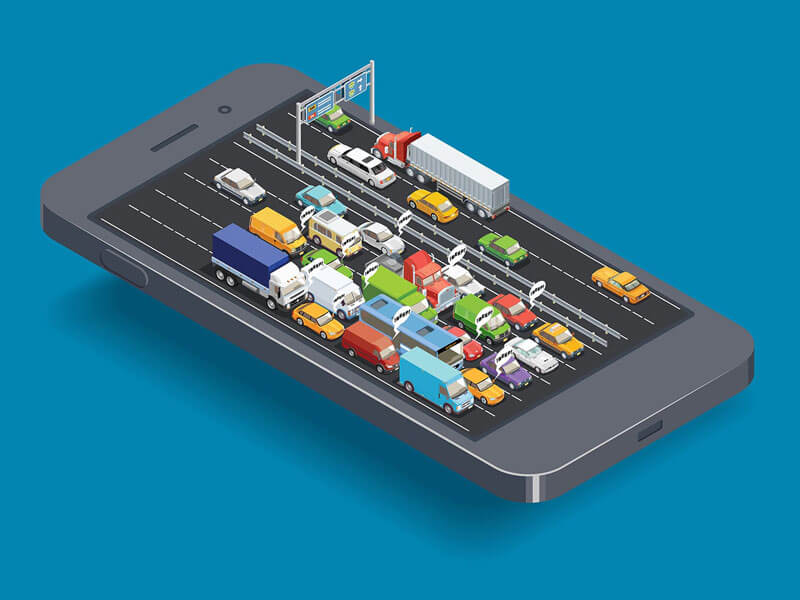- September 06, 2018
- By Chris Carroll
While millions of commuters face rush hour battles armed with Google Maps or Waze, a new travel planning app from UMD helps you find your best route while offering a new weapon: free swag.
With incenTrip, available in the Apple and Android app stores, users earn rewards for taking public transit or driving during less congested hours, reducing traffic throughout the region for everyone.
Sure, it offers driving directions, but its real talent is finding alternate travel modes: mass transit, car- and vanpools and even bikeshare programs. The possibilities it uncovers can surprise you, says app co-developer Chenfeng Xiong, an assistant research professor in the Department of Civil and Environmental Engineering.
“I learned from the app there’s a Shuttle-UM (route) I didn’t know about that goes from near my house to campus that I now use,” he says.
Using predictive modeling algorithms developed by the university’s National Transportation Center (NTC), it also supplies a range of departure-time options that illustrate how leaving a little earlier or later might cut your time going from A to B.
As the name suggests, incenTrip users earn incentives—five points for a car ride at the height of rush hour, for instance, but maybe 160 for taking a bus—redeemable for gift cards to retailers like Amazon and the Apple Store. Eventually, they should be redeemable for cash and transit tickets as well, says Professor Lei Zhang, Herbert Rabin Distinguished Professor and NTC director.
Zhang’s goal for the app, developed with funding from the U.S. Department of Energy, is to reduce traffic delays, energy use and congestion by 10 percent over the next few years. About 160,000 app users could make that a reality, according to NTC estimates.
That might not seem like many out of nearly 4 million commuters, but NTC research shows that when an incenTrip user saves just one hour in traffic, it has an exponential effect, saving five to 18 hours systemwide, he says.
The Metropolitan Washington Council of Governments Commuter Connections program plans to add incenTrip to the accounts of tens of thousands of members later this year. Zhang hopes positive word of mouth—and the swag—will bring in even more.
“This is a very different way to look at resolving these problems,” Zhang says. “A 10 percent reduction in congestion is not something we’ve accomplished with billions of dollars in investment in capacity. We need to look at how to better manage travel demand.”
To learn more, visit incenTrip.org.
Topics
Research